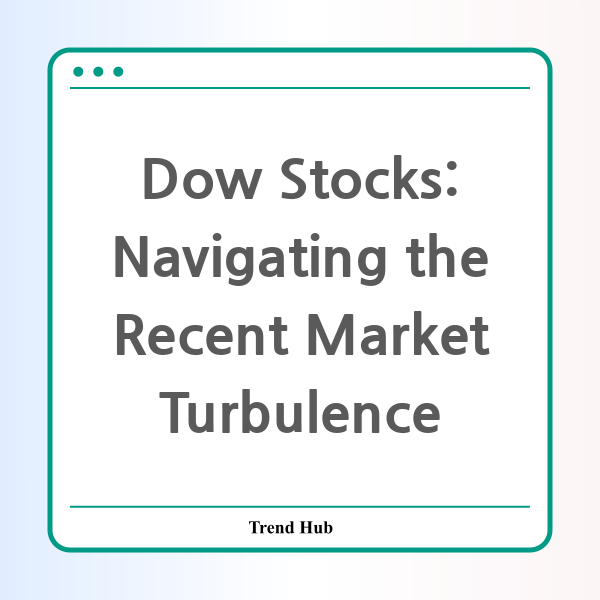* This website participates in the Amazon Affiliate Program and earns from qualifying purchases.

Have you felt the jitters in the stock market lately? With the Dow Jones Industrial Average recently closing 400 points lower, investors are anxious about the implications of inflation and tariff fears on Dow stocks. Let’s delve deep into what’s happening in the market and how it affects your investments.
The stock market experienced a turbulent end to the week as traders reacted to news regarding potential tariffs and rising inflation. The Dow fell by a significant 444.23 points, closing at 44,303.40. This dip was not an isolated event; it followed several days of volatility spurred by geopolitical developments and economic indicators that raised concerns among investors.
On Friday, President Trump announced plans for reciprocal tariffs on trading partners, indicating a strategy that might increase tariff rates across the board to match those charged by other countries on U.S. goods. This news alone was enough to shake investor confidence, as many anticipated that increased tariffs could lead to higher prices for consumers and decreased corporate profits. The announcement came during a meeting with the Japanese Prime Minister, showcasing how geopolitical moves can have immediate effects on market sentiment.
Adding fuel to the fire, economic indicators showed a rise in inflation expectations. The University of Michigan's consumer sentiment index revealed that respondents anticipated a one-year inflation rate of 4.3%, the highest level seen since November 2023. This spike in inflation expectations typically spurs anxiety in the stock market, especially among growth-oriented companies that may struggle to maintain profitability if consumer spending diminishes due to higher prices.
Another significant factor contributing to the market's downturn was the latest jobs report. Although the unemployment rate dipped to 4%, the economy added fewer jobs than expected in January, missing Dow Jones consensus estimates. The report suggested a slowdown in job creation, raising concerns about the overall health of the economy, particularly as inflation pressures increase.
But it wasn’t all gloom and doom. On the earnings front, some companies reported strong results, hinting at resilience in specific sectors. For example, Bank of America named XPO Logistics as a top pick, citing its solid momentum in generating less-than-truckload (LTL) service. This reflects how certain stocks can thrive even amid broader market turbulence, highlighting the importance of diversification in your investment strategy.
Despite the challenges, some analysts believe the market is not headed towards a bear market. As Sam Stovall, chief investment strategist at CFRA Research, noted, we might just be witnessing volatility and short-term disappointment rather than a prolonged downturn. This perspective allows some hope for those invested in Dow stocks, suggesting that patience could yield positive returns in the long run.
The upcoming weeks will be critical as the market digests the implications of the tariffs and inflation data. Investors should watch for any further developments on trade policies that could exacerbate market conditions. Moreover, as earnings reports from various sectors continue to roll in, insight into corporate profitability amidst these economic headwinds will be valuable.
In summary, as we navigate the complexities of the current market landscape, it is essential to stay informed about broader economic indicators and specific stock performances. Dow stocks may face challenges, but with careful analysis and strategic investments, investors can still find opportunities amidst the turmoil.
As always, maintaining a diversified portfolio and having a long-term perspective can help mitigate risks associated with such market fluctuations. Remember to do your due diligence and consult with financial experts when necessary to ensure you’re making informed investment choices.
* This website participates in the Amazon Affiliate Program and earns from qualifying purchases.